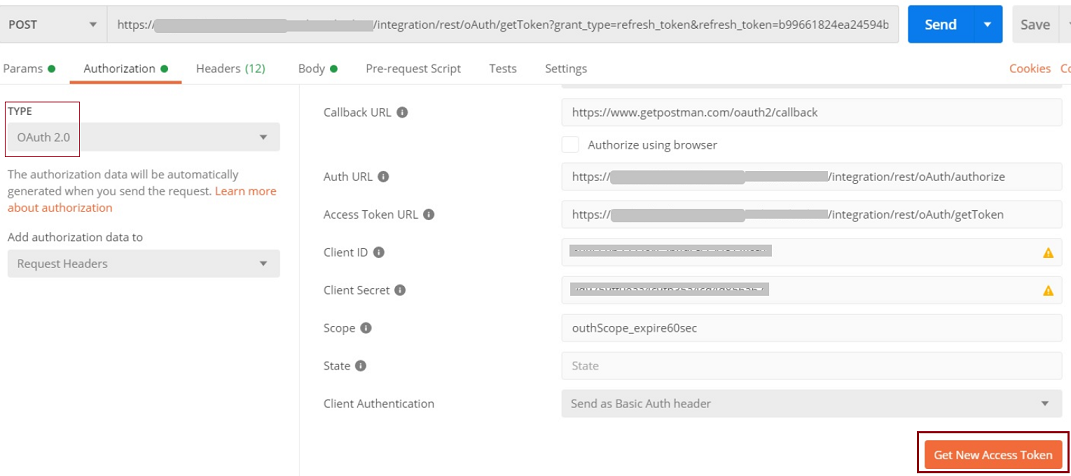Generating Tokens
You can generate tokens (Access Token and Refresh Token) by using a REST Client. Integration Cloud supports the Authorization Code Grant, Implicit Grant, Client Credentials Grant, and Resource Owner Password Credentials Grant to generate the access tokens. Clients use the access tokens to invoke REST URLs for running the Integrations.
See
About OAuth 2.0 for information on the high-level steps for configuring OAuth 2.0.

The following example shows how to generate tokens using Postman
1. Add the Postman extension to your Google Chrome web browser.
2. Open the Postman application.
3. On the Postman Authorization page, select the Type as OAuth 2.0, specify the details, and then click Get New Access Token to request a new access token.
Field | Description |
Callback URL | Specify the redirection URL added during client registration. |
Token Name | Provide a token name. |
Auth URL | Provide the Authorization Endpoint URL available on the Client page in the following format: |
https://abc.webmethodscloud.com/integration/rest/oAuth/authorize |
Access Token URL | Provide the Access Token Endpoint URL available on the Client page in the following format: |
https://abc.webmethodscloud.com/integration/rest/oAuth/getToken |
Client ID | Specify the client ID available on the Client page. |
Client Secret | Specify the client secret available on the Client page. |
Scope (Optional) | Specify the scope associated with the client. |
Grant Type | Select Authorization Code or Implicit. |
4. Integration Cloud login page appears. Login to Integration Cloud with your credentials.
An approval or permission page appears. This page is an HTML page Integration Cloud sends to the resource owner, after a client submits a request for access to its private resources. The resource owner uses the page to accept or deny the request.
5. Select the scopes you want to grant access and then click Approve.
On approval, an access token is generated. A refresh token may also be generated depending on the Refresh Count configured for your client, and also if your grant type is Authorization Code Grant.
